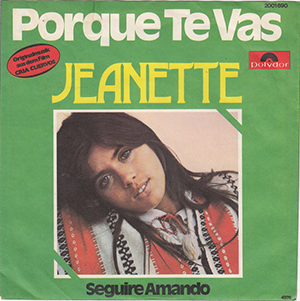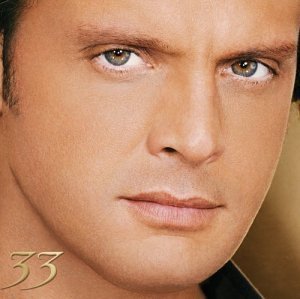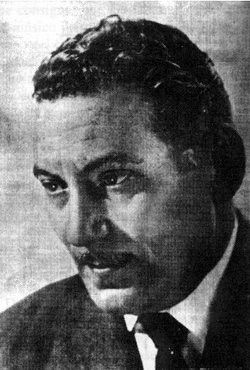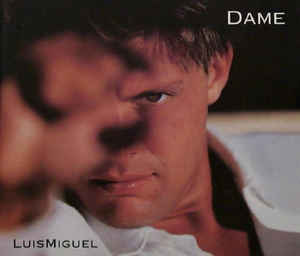
Janette Anne Dimech, known professionally as Jeanette, is a Spanish singer. She first rose to prominence as the lead singer of Pic-Nic, a teenage folk-pop band that topped the charts in 1968 with her song "Cállate, niña". Jeanette returned as a solo artist in 1971 with the Hispavox single "Soy rebelde", which redefined her career as a romantic balladist and was a hit across the Spanish-speaking world, becoming a generational anthem.

Marisela Hernandez, commonly known as Marisela, is a Mexican-American singer. In 1984, she recorded her first album at the age of 18, and continued to release albums into the 1990s. Her cover version of Barbara George's single "I Know ", titled "Ya No", peaked at number-one in the Billboard Latin Songs chart in 1990. As a child she starred in Villa Alegre.

¡No me toques las palmas que me conozco! is María Isabel's first album and was released in 2004.

"Porque te vas" —often but mistakenly referred to as "¿Por qué te vas?" or "Porqué te vas" —is a song by English-born Spanish singer Jeanette, written by José Luis Perales and produced by Rafael Trabucchelli for record label Hispavox in 1974.

José Martín Cuevas Cobos, known by his stage name Pedro Fernández, is a Mexican singer, songwriter, actor, and television host. Fernández began his international career as Pedrito Fernández at the age of seven.
Parchís was a children's music group from Spain which enjoyed great success in the Spanish-speaking world in the 1980s. Their significance in Hispanic popular culture comes from being perceived as an archetype of this type of band at the time. Parchís' original five members were Constantino Fernández Fernández, Yolanda Ventura Román, Oscar Ferrer Cañadas, Gemma Prat Termens, and David Muñoz Forcada. After several line-up changes, the group disbanded in 1982 with various members continuing successful careers in the world of entertainment.

Miguel Aceves Mejía was a Mexican actor, composer and singer.

Enrique Carreras was a Peruvian-born Argentine film director, screenwriter and film producer, and was one of the most prolific film directors in the history of the Cinema of Argentina.

Nada Es Igual... is the eleventh studio album by Mexican recording artist Luis Miguel. It was released by WEA Latina on 20 August 1996. The album has a musical style similar to his previous pop album Aries (1993) on which Miguel performs power ballads and R&B tunes. Recording took place at the Record Plant Studios in February 1996, with production handled by Miguel and his longtime associate Kiko Cibrian. Its songwriting was assisted by Cibrian, Rudy Pérez, and Alejandro Lerner. The album was promoted by three singles: "Dame", "Cómo Es Posible Que a Mi Lado", and "Que Tú Te Vas"; the former became the most successful single reaching number two and number one on the Billboard Hot Latin Songs and Latin Pop Songs charts, respectively. To further promote the recording, Miguel launched the Tour America 1996 where he performed in several South American countries.
Rey Charol (1936–1990) was an Uruguayan film and television actor of African descent. Best known for his role as Cirilo Tamayo's father in "Jacinta Pichimahuida" and "Señorita maestra" TV series, he entered Argentina's film industry in 1960 and made some twenty appearances in film between then and 1987.

33 is the fifteenth studio album by Mexican singer Luis Miguel. It was released through Warner Music Latina on 30 September 2003. It is a pop record which contains pop ballads and uptempo disco numbers. The album was produced by Miguel and recorded in Hollywood, California. 33 was promoted by two singles: "Te Necesito" and "Un Te Amo". It was also promoted by a tour which lasted from 2003 to 2004. Several songwriters including Armando Manzanero, Juan Luis Guerra, and Kike Santander contributed to the compositions in the record.

Alejandro Fernández is the debut self-titled album recorded by Mexican singer Alejandro Fernández. Produced by Pedro Ramírez. The hit singles from this album are: "Necesito Olvidarla", "Equivocadamente" and "Brumas". It was nominated for Regional Mexican Album of the Year at the Lo Nuestro Awards of 1993.

America Tour 1996 was a concert tour performed by Luis Miguel during the last part of 1996 to promote his last album Nada Es Igual. It only lasted for one month and it only took place at some places in South America, like Buenos Aires, Argentina in the River Plate Stadium, Santiago de Chile, Uruguay, Peru, Paraguay, Ecuador and Brazil.
Juan Alighieri was an Argentine film actor.

Norteño is the third album by Mexican singer Verónica Castro. It was released in 1980.

Roberto Tapia is an American singer of Mexican ancestry. He was born in San Diego, California and raised in Culiacán, Sinaloa, Mexico. He adopted the Regional Mexican genre and in August 2012, his album El Muchacho hit #1 on Billboard's Top Latin Albums chart. Tapia was one of three coaches on the first two seasons of La Voz Kids, a Spanish-language version of The Voice featuring American Spanish-speaking children on the Telemundo Network. He inclusively became a business man in the year of 2013, promoting restaurants, and still continuing with his singer life.

Alberto Amado Ribero, known professionally as Tito Ribero, was an Argentine film score composer, composer, singer, and musician. In addition to having his own orchestra, he provided the film scores to over 200 movies, at his most prolific in the 1950s and 1960s. For Del otro lado del puente he won the Silver Condor Award for Best Original Score from the Argentine Academy of Cinematography Arts and Sciences in 1953.

"Dame" is a song written by Alejandro Lerner and Kiko Cibrian and performed by Mexican recording artist Luis Miguel. It was released as the lead single from his eleventh studio album Nada Es Igual... on 15 July 1996 to radio stations. "Dame" was recorded at the Record Plant studio in Los Angeles, California. The song incorporates R&B and hip-hop influences. The music video for "Dame" was directed by Marcus Nispel and filmed at the Mojave Desert in California and was nominated Video of the Year. It received mixed reactions from music critics who felt that the track sounded too similar to his previous pop recordings. "Dame" peaked at number two and one on the Billboard Hot Latin Songs and Latin Pop Songs charts in the United States and received a BMI Latin Award in 1998.

Corazón de poeta is the fourth studio album by English-born Spanish singer Jeanette, released in June 1981 on RCA Victor. The album was almost entirely written and produced by composer Manuel Alejandro, who had written "Soy rebelde", Jeanette's 1971 breakthrough as a canción melódica singer. After releasing an LP record in France and an unsuccessful foray into disco in Germany, Corazón de poeta was Jeanette's return to the Spanish market, as well as to the soft, sentimental ballads she had been known for. Corazón de poeta intended to reinvent Jeanette's childlike image into a more mature one, reflected in its erotic tone and its promotional campaign.















